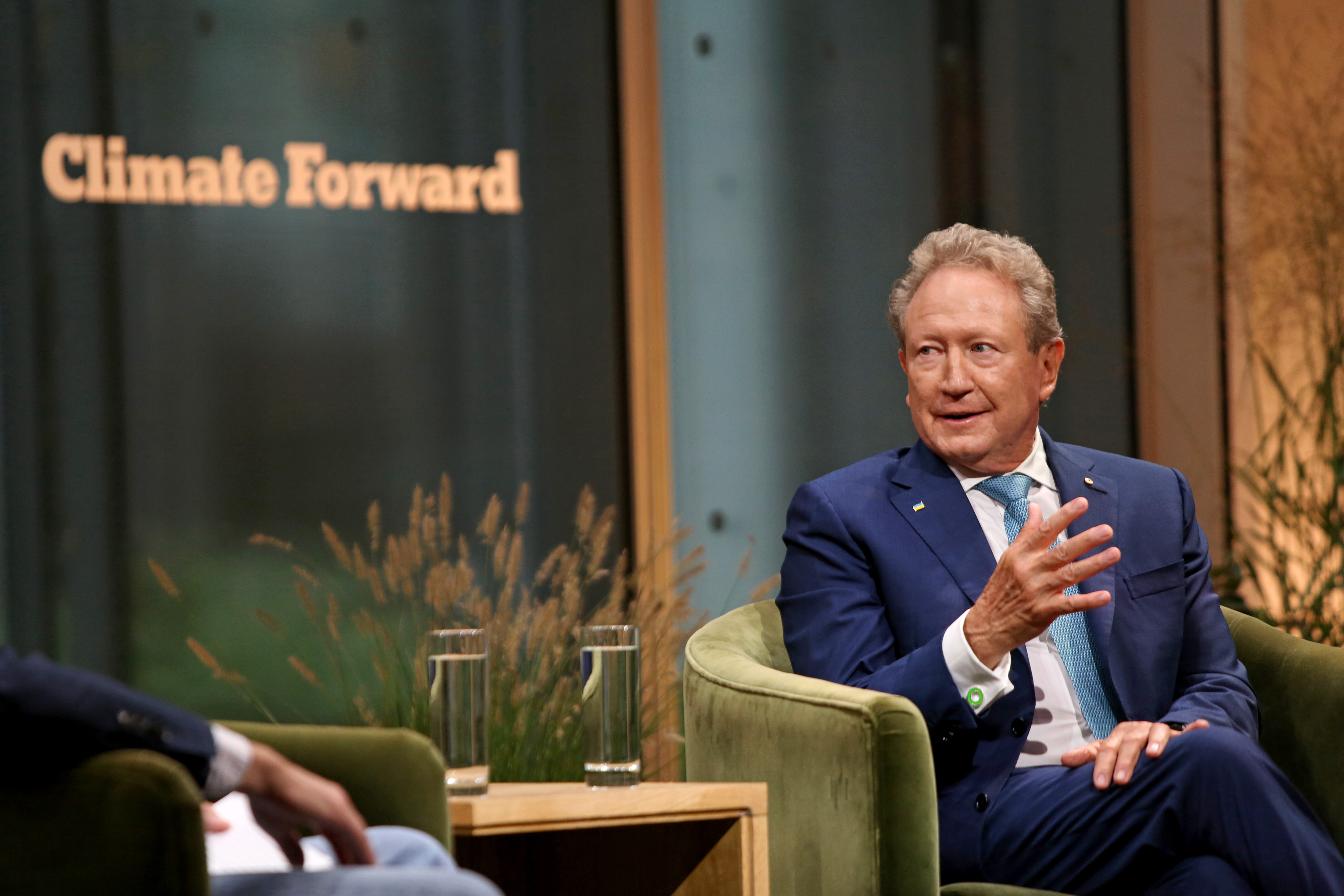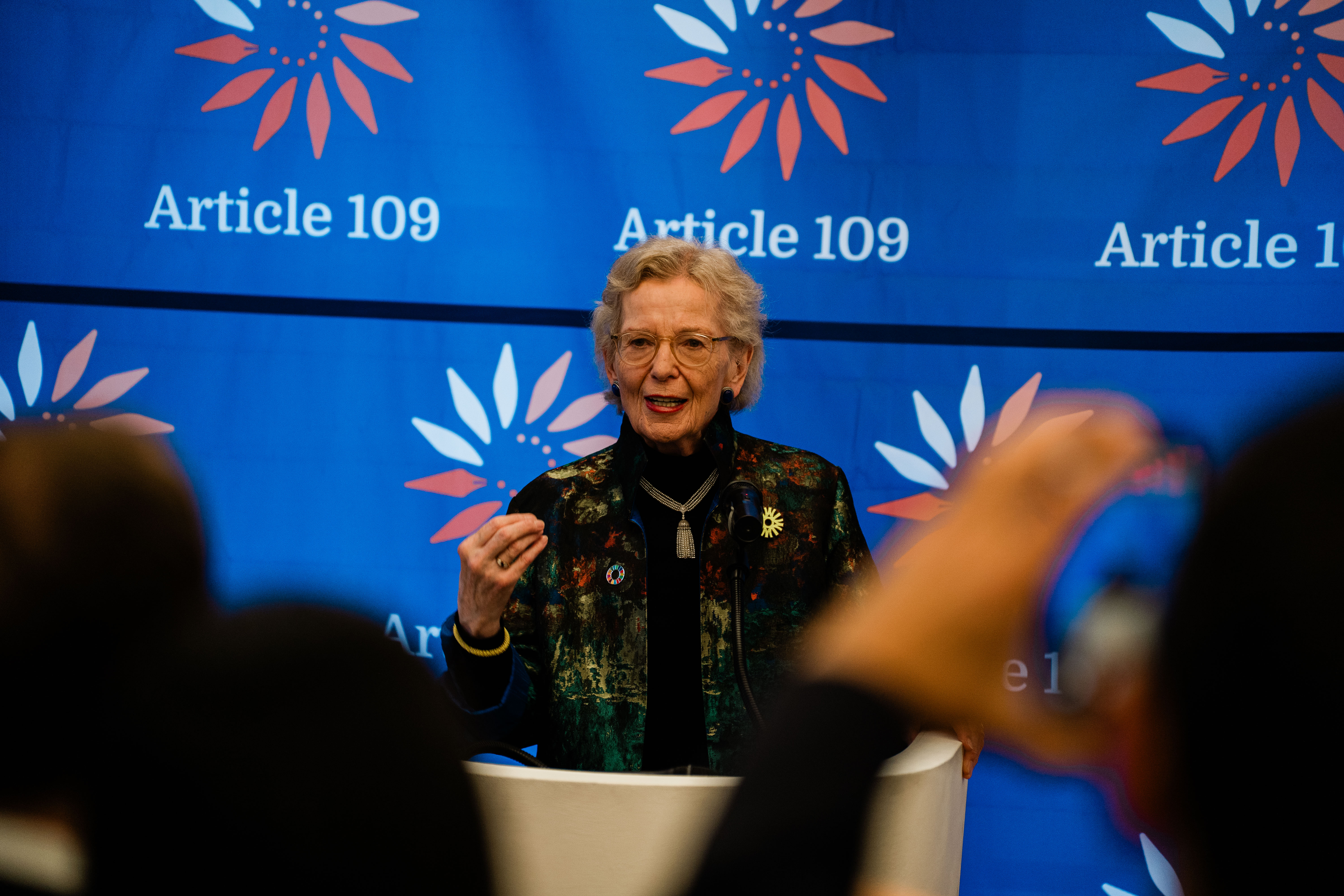At the 80th United Nations General Assembly, Minderoo Foundation joined governments, businesses and communities to drive practical action on today’s most urgent challenges.
Once a year in New York, leaders from 193 United Nations member states gather under one roof.
It’s no small feat bringing that many decision makers together, so you can imagine that the agenda items are significant.
And what could be more significant than the future of our planet?
This annual event – the United Nations General Assembly (UNGA) – gives world leaders a platform to tackle the biggest challenges facing people and planet.
This year, UNGA’s 80th session (UNGA80) placed four priorities front and centre:
- Pushing for peace in conflict zones
- Ensuring sustainable financing to tackle the big issues like climate
- Making AI safe and inclusive, and
- Delivering on a new Pact for the Future.
Few issues could be more pressing.

At Minderoo, our focus spans climate, environmental, humanitarian and social goals – all of which are deeply interconnected. You can’t solve one without considering the others, and the priorities of this year’s session strongly align with our work.
That’s why, alongside Dr Andrew Forrest, we were on the ground at UNGA80 to:
- connect leaders, amplify expert voices, and showcase how solutions in one area can drive change across the board
- stand alongside those already leading and help them go even further
- and ultimately, push forward our mission to forge a fair future
Because the world’s biggest problems don’t stop at borders – and neither should the solutions.
What is the UN Charter?
The UN Charter is the founding treaty and foundational document of the United Nations, signed in 1945 after World War II.
It codifies the core principles of international law and dictates the way the United Nations aim to:
- promote human rights
- maintain international peace and security,
- foster friendly global relationships, and
- provide a framework for international cooperation.
With UNGA80 now wrapped up, here are five ways it has moved global action forward.

1. Momentum for long-overdue UN reform and stronger protection for humanitarian workers.
When the UN Charter was signed in 1945, it included a promise: its rules could be reviewed.
Yet in nearly 80 years, Article 109 - the built-in mechanism for reform – has never been used.
At UNGA80, momentum built towards this historic step. Governments and civil society are now working together to lay the groundwork for the most comprehensive UN reform in the organisation’s history.
If invoked, Article 109 could help ensure the UN is fit for purpose in the 21st century – able to respond swiftly to crises and tackle today’s complex challenges.
Alongside this, the urgent need to protect humanitarian workers – the frontline heroes risking everything to deliver lifesaving support – was front and centre.
We contributed $1.7 million to help mobilise the Article 109 Coalition and a further $1.52 million to strengthen protection for humanitarian workers, backing those who are leading these efforts on the ground.
Both strands reflect the same goal: ensuring the UN system can deliver when people need it most.
– Dr Andrew Forrest.
2. Scaling up existing solutions for ocean innovation and resilience.
The ocean is our planet’s largest natural carbon sink and a critical buffer against climate disruption – but its resilience is under pressure.
At UNGA80, partners from across science, business, philanthropy and government came together to accelerate ocean innovation.
Through our Strategic Impact Fund, we committed $8.9 million to support a global investment initiative to scale up proven solutions that restore ocean health, drive a sustainable blue economy and strengthen the evidence base for urgent policy change.
This work builds on global efforts to protect 30 per cent of the world’s oceans by 2030 and ensure the High Seas Treaty delivers in practice. By scaling investment into innovation, the world is better placed to restore the resilience of our shared ocean.

3. Global expertise united to tackle lethal humidity.
When extreme heat and high humidity combine, it can push the human body beyond the limits of survival. This is known as lethal humidity – one of the least recognised yet most urgent climate threats. Its impacts stretch beyond health. From lost working hours and productivity to the displacement of entire communities, the effects are already far-reaching and are only expected to accelerate – unless we act now.
At UNGA80, the Lethal Humidity Global Council (LHGC) gathered in New York, bringing together more than 160 members across nine countries, including universities, research groups, governments, nonprofits and businesses, to form a global hub for urgent action.
By uniting expertise across climate science, health, technology and policy, the Council is ensuring this defining issue receives the recognition and solutions it demands.

4. The High Seas Treaty begins its journey from paper to practice.
Just in time for UNGA80 – and after two decades of negotiations – the High Seas Treaty has been ratified.
This milestone is a once-in-a-generation chance to protect life in international waters. But treaties alone don’t safeguard biodiversity; implementation does.
At UNGA80, governments, NGOs and scientific organisations committed to working together to ensure the treaty delivers in practice. We supported this collective effort with $4.25 million to help accelerate a swift, science-based rollout.
Working alongside organisations like the High Seas Alliance and the Marine Conservation Institute, this next phase will focus on helping countries:
- ratify and implement the treaty
- access policy, legal and technical expertise
- strengthen global science-based standards for marine protection
- ensure high seas marine protected areas deliver real outcomes
By backing these partners, we are helping ensure the treaty translates into real benefits for people, planet and future generations.
5. Placing the ocean at the heart of climate action.
Until now, the ocean’s central role in regulating our climate has been underrepresented. At UNGA80, leading scientists and global partners came together to highlight just how critical the ocean is to maintaining planetary boundaries.
One of the world’s most influential tools for understanding the Earth’s limits is the Planetary Boundaries framework, pioneered by scientists at the Potsdam Institute for Climate Impact Research.
At UNGA80, we announced a landmark $5.3 million partnership with the Potsdam Institute to advance its work and firmly place the ocean at the heart of this framework.
Over the next five years, the program will expand scientific understanding of ocean heat and carbon sink dynamics, identify tipping points, and develop new indicators of marine biodiversity resilience.
By strengthening the evidence base, this collaboration will ensure that ocean science informs global climate action and helps guide the urgent policies and investments to safeguard our shared future.
The 80th UN General Assembly was a reminder that progress happens when diverse actors come together - with governments, scientists, communities, businesses and philanthropies each playing their part.
From conversations on UN reform to collective action on ocean health, lethal humidity and the High Seas Treaty, this year showed the power of collaboration in turning ambition into impact.
While we have made critical steps towards protecting humanitarian workers and safeguarding our oceans, treaties only matter if they translate into action.
That’s why we’ll continue to work alongside partners across borders, disciplines and sectors to support the practical solutions needed for a fairer, safer and more sustainable future.